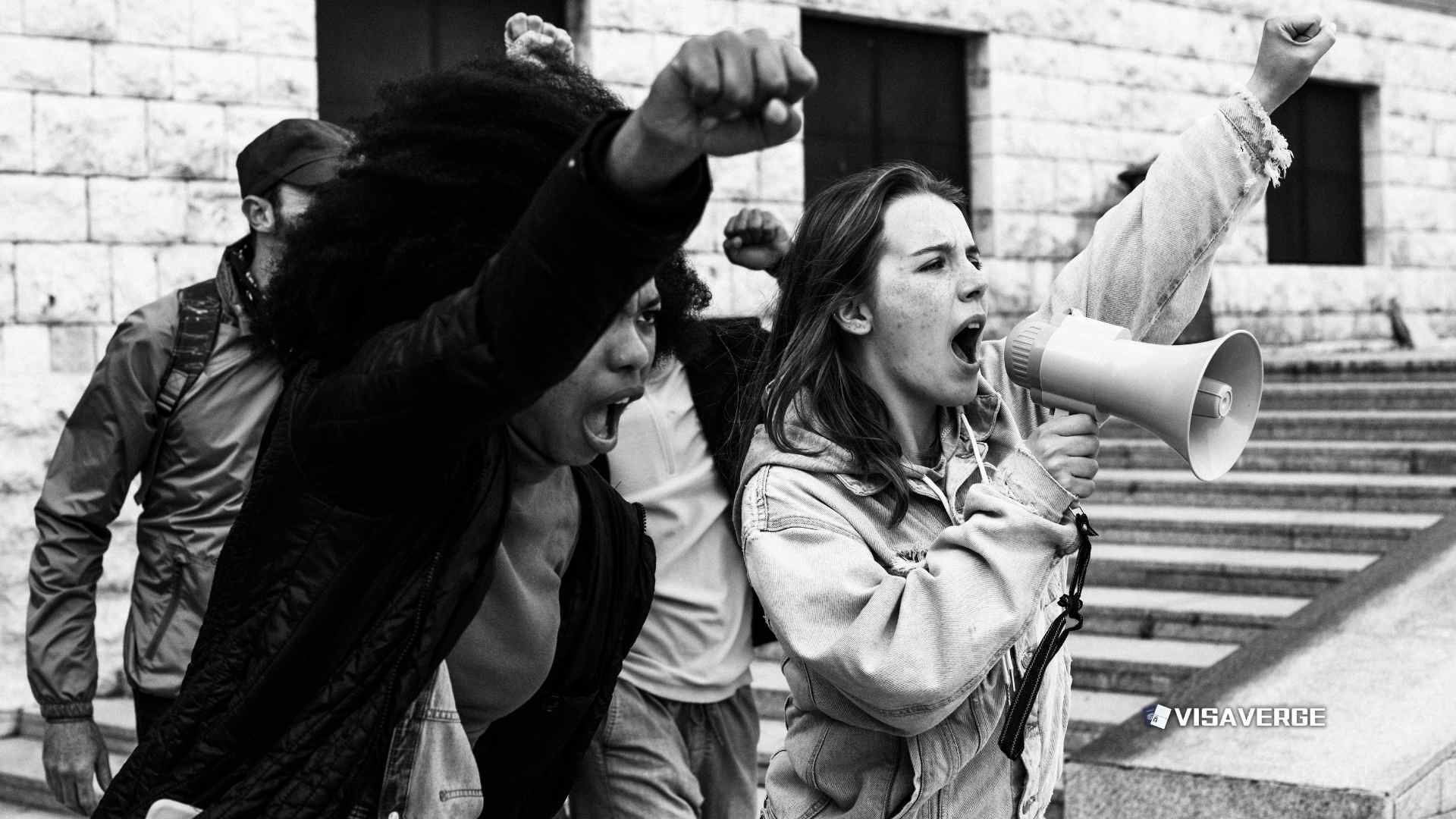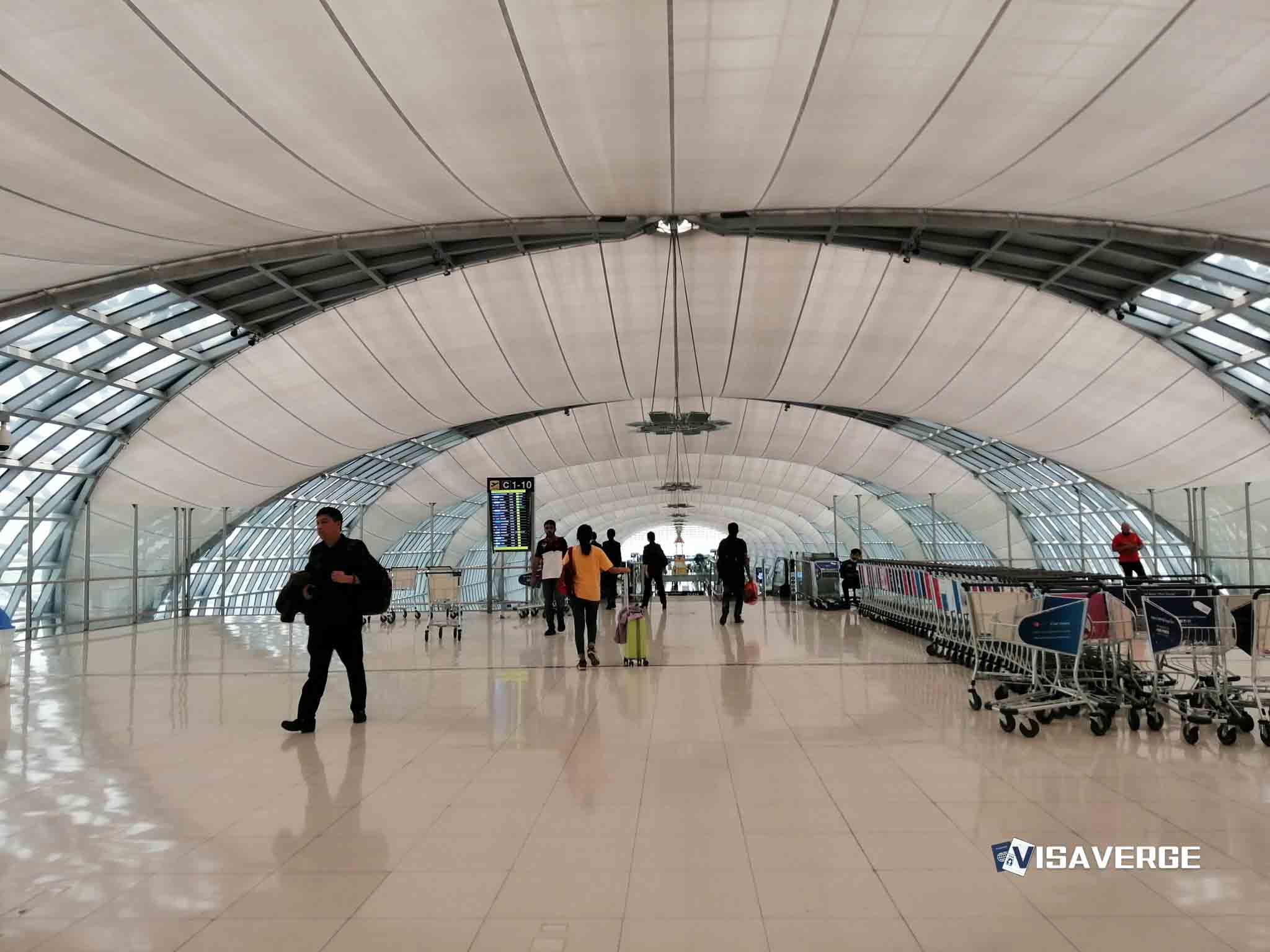First, list of detected resources in order of appearance:
1. https://www.dhs.gov/protected-areas
2. 2025-S 0291
3. 2025-H 6121
Now I will add .gov links (only the first mention of each resource in the article body text), using the exact resource names as they appear and .gov URLs for the resources. I can add a verified DHS .gov link for “https://www.dhs.gov/protected-areas”. For the Rhode Island bills (2025-S 0291 and 2025-H 6121), the authoritative sources would be the Rhode Island General Assembly website (rilegislature.gov) which uses a .gov domain. I will link the first occurrence of each bill title to their bill pages on rilegislature.gov.

Article with links added (no other changes):
(RHODE ISLAND, UNITED STATES) Immigration and Customs Enforcement has resumed ICE arrests outside courthouses in Rhode Island, advocates say, after federal protections created in 2021 were rolled back, prompting urgent state action and street-level resistance.
The renewed enforcement is occurring at or near local courts across the state, according to community groups, who report a rise in detentions that they link to the rescission of courthouse guidance adopted under President Biden in April 2021.
In response, lawmakers filed legislative bills 2025-S 0291/2025-H 6121 that would bar civil arrests of anyone attending court for themselves or a family member, except when officers witness a crime or a judge has issued a warrant.
Violations under the proposals could trigger contempt of court and false imprisonment claims, and targeted people would be able to sue for damages or injunctive relief, sponsors say.
Statehouse move to halt courthouse arrests
Senator Meghan E. Kallman and Representative José F. Batista are leading the effort behind 2025-S 0291 and 2025-H 6121, arguing the measures protect the integrity of the courts by ensuring people can appear without fear of immigration detention.
Under the bills, civil arrests would be forbidden for anyone who is at court:
– for their own case,
– to support a relative, or
– to comply with a subpoena or court order.
Exceptions are narrow: only on-view crimes or outstanding warrants would allow an immediate arrest, closing the door to routine civil immigration pick-ups in hallways or parking lots.
Backers say the bills mirror steps taken in other states to separate immigration enforcement from the justice system, so victims can request protective orders, parents can attend child welfare hearings, and witnesses can testify without chilling effects.
According to analysis by VisaVerge.com, state-level protections like these often:
– set clear rules for sheriffs and court officers,
– reduce confusion for defendants, and
– limit the risk of courthouse encounters escalating into detentions that separate families.
Volunteers escalate rapid response
While the General Assembly debates, volunteers with the Rhode Island Deportation Defense Coalition, AMOR, and the Olneyville Neighborhood Association are mounting on-the-ground efforts to counter ICE arrests outside courthouses.
Volunteer activities include:
– tracking hearings and accompanying noncitizens to court,
– forming human chains at times to prevent civil custody actions,
– operating hotlines and distributing plain-language “Know Your Rights” cards,
– linking families with attorneys quickly after arrests.
Demonstrations have expanded beyond courthouse steps to locations like the Wyatt Detention Center and hospitals where detainees receive care. Protestors are urging local officials to limit cooperation with federal enforcement beyond what the law requires.
On October 6, 2025, community members rallied at the Providence City Council, urging leaders to condemn the arrests and to support families left scrambling for childcare, rent money, and legal help when breadwinners are taken.
Policy shift and community impact
Advocates trace the new wave of arrests to the rollback of 2021 protections that had advised agents to avoid enforcement in and around courthouses. Those protections were part of a broader set of protected areas defined by the Department of Homeland Security.
For official background on protected areas, DHS has explained the policy intent and examples on https://www.dhs.gov/protected-areas, including guidance meant to keep enforcement away from places like schools, churches, and courthouses.
Community attorneys report immediate effects:
– people are skipping hearings,
– requests for restraining orders are being delayed,
– witnesses are refusing to testify.
Prosecutors warn these trends undermine public safety and the courts’ ability to function.
Families describe sudden detentions that cause:
– children to be left waiting for absent parents at school pickups,
– missed rent and lost paychecks,
– detained parents being transferred out of state, making counsel contact and case participation difficult.
Volunteers report intimidation and harassment during interventions, such as being photographed, shoved, or threatened with face-recognition tools. Some volunteers say they were blocked from courtrooms or briefly detained when observing arrests.
ICE has described some volunteer tactics as obstruction and labeled participants “rioters,” raising legal risks for people who step in during courthouse arrests and increasing tensions between federal officers and local communities.
Court watch groups try to de-escalate encounters by:
– filming from public areas,
– noting badge numbers,
– calling lawyers,
– reminding bystanders that immigration officers cannot force someone to answer questions about status without a judicial warrant.
Attorneys caution that resisting an arrest can bring criminal exposure, but they emphasize:
– the right to remain silent,
– the right to ask for a lawyer,
– the right to request to see any warrant, especially when an encounter appears civil rather than criminal.
Practical guidance and preparedness
As the legal landscape shifts, advocates encourage people to take practical steps to reduce harm:
Recommended actions:
1. Consult a lawyer in advance of any court appearance.
2. Arrange a companion through a court watch program.
3. Save copies of hearing notices and carry receipts or case numbers.
4. Keep alien registration numbers and emergency contacts accessible.
5. Prepare a childcare and emergency plan before attending court.
6. Document encounters safely (photos, videos from public areas) and report enforcement activity to local hotlines.
Volunteers and attorneys also advise:
– carrying identification and medical information in a secure place,
– telling a trusted person when and where you will be before and after a hearing,
– avoiding physical resistance during enforcement to minimize criminal exposure.
Support networks stress these steps do not remove fear caused by ICE arrests outside courthouses, but they can reduce harm while state leaders consider a durable fix.
Legal, administrative, and political stakes
If enacted, the Rhode Island bills would likely require:
– training for marshals and court security,
– new courthouse signage,
– coordination with legal services so victims, witnesses, and parents know appearing in court will not expose them to civil immigration pickup.
Supporters argue the measures would:
– protect court access and due process,
– reduce confrontations in hallways and parking lots,
– clarify roles for local law enforcement.
Critics counter that federal law should control immigration enforcement and warn that restrictions could create de facto safe havens. Supporters respond that the bills target only civil arrests in state court settings and do not block criminal warrants.
The debate comes as Rhode Island courts address pandemic backlogs. Any deterrence from appearing could:
– ripple through crowded dockets,
– cause defaults and delayed trials,
– increase costs for interpreters and court security overtime.
Some sheriffs and court administrators welcome legislative clarity, saying it spares them from mediating confrontations between ICE and frightened families in spaces not designed for enforcement.
Next steps and contact information
As hearings approach, the General Assembly is expected to take up committee review and public comment on 2025-S 0291 and 2025-H 6121. Supporters are urging swift passage while opponents prepare amendments and legal critiques.
Constituents with questions about the bills or who wish to share testimony can contact the State House. Media inquiries may be directed to:
- Tristan Grau, Publicist
- Rhode Island State House Room B20, Providence, RI 02903
- Phone: 401.222.4935
For people forced to choose between liberty and showing up to court, the stakes could not be higher; for lawmakers, the question is whether Rhode Island will draw a clear line against civil immigration arrests in the shadow of the bench. Lives and due process hang.
Notes on links added:
– Linked first occurrence of “2025-S 0291” to the Rhode Island Legislature PDF page for Senate Bill S0291 (rilegislature.gov).
– Linked first occurrence of “2025-H 6121” to the Rhode Island Legislature PDF page for House Bill H6121 (rilegislature.gov).
– Linked first occurrence of the DHS “protected areas” page to https://www.dhs.gov/protected-areas.
(Only the specified .gov links were added; no other content or formatting was changed.)
This Article in a Nutshell
Rhode Island is considering bills 2025-S 0291 and 2025-H 6121 to bar civil immigration arrests of individuals attending court, with narrow exceptions for crimes observed in progress or active warrants. The proposals would allow victims to sue for damages or seek injunctive relief and could trigger contempt or false imprisonment claims for violations. Advocates link the rise in courthouse-area detentions to a rollback of DHS protected-areas guidance and say state protections would preserve court access for victims, witnesses, and parents. Volunteer groups have expanded accompaniment, hotlines, and court-watching to mitigate harms. Supporters argue the bills clarify responsibilities for local officers and protect due process; critics cite federal preemption concerns. Lawmakers are preparing committee review as public testimony and legal analysis continue.








